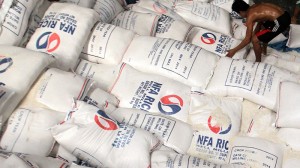Neither lower global oil prices nor the geopolitical tensions in the Middle East could possibly dampen the robust and resilient inflows of cash sent home by Filipinos overseas through banks, Washington-based Institute of International Finance said.
In a June 30 research note titled “Philippines Remittances Resistant to Oil Slump,” a copy of which was provided to the Inquirer, economist Kevin Sanker said “recent data suggests receipts have been resilient,” such that the IIF expected “continued moderate expansion” in remittances.
“The recent decline in oil prices (down 16 percent year-to-date) has caused some concerns that production cutbacks in the Middle East, along with geopolitical strains, could harm remittance inflows as the region represents about 28 percent of the total,” the IIF noted.
Also, “Saudi Arabia (10 percent of remittances) instituted an amnesty program from March 29 to allow illegal workers to leave the country without penalty. This accounted for a large part of the 5.9 percent year-on-year drop in remittances in April,” the IIF said.
“More recently, the severing of ties between several Gulf nations and Qatar (4 percent of remittances) raised fears that remittances will suffer if the lingering tension would adversely affect the economy in the region,” the IIF added.
But despite these developments, the IIF pointed out that remittances from the Middle East grew 3.2 percent year-on-year as of end-April.
“Any negative impact in the near term is likely to be temporary and should not affect the overall outlook for sustained moderate expansion, the IIF said, citing that “total receipts successfully weathered the sharp fall in oil prices in 2014 to 2015 and are likely to withstand the recent decline as the large pool of OFWs [overseas Filipino workers] continues to send funds home in an economic and financial vote of confidence.”
Meanwhile, remittances from Qatar “should be helped by the Philippine government’s recent lifting of its temporary moratorium on deploying OFWs there following the escalated tensions with its neighbors,” the IIF said.
“Further, President Duterte emphasized opportunities and welfare for OFWs in the region during his trip in April to Saudi Arabia, Bahrain and Qatar,” it added.
It also helps that sending cash back to migrants’ home countries is now easier and faster, according to the IIF.


